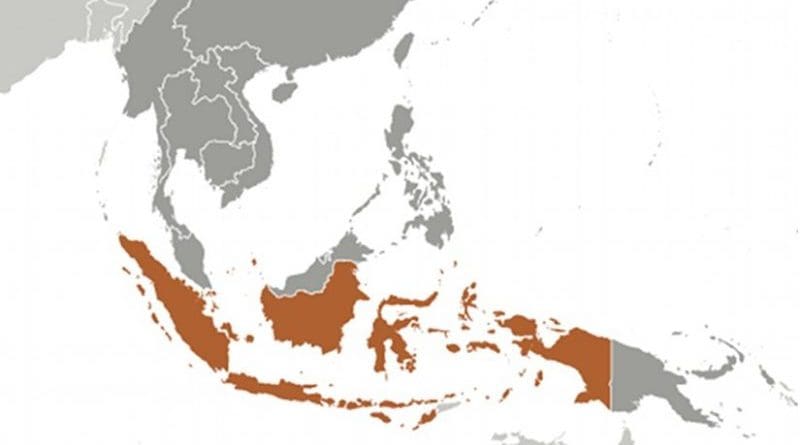Indonesia’s Change Of Heart On TPP Raises Hopes For Wider Asian Trade Deal – OpEd
By Grace Guo
Indonesia’s President Joko Widodo gave his clearest indication that he intends to reform and modernize his country’s economy with an announcement during his first US visit that he intends to join the Trans Pacific Partnership. He went on say that he hoped to do so in two years’ time, but that the international community would need to be patient with him and Indonesia as the changes and reforms required for the country to be able to fully operate within the TPP agenda would take time.
President Obama was said to be surprised by President Widodo’s announcement, however, to those who have followed the Indonesian President’s first full-year in office closely, it may seem more like a natural next step. While there will, without doubt, be internal opposition to this move, the news suggests that after a year in office Indonesia’s president – fondly called Jokowi – is finally beginning to see a way out of the protectionist policies that are weighing down the country’s economy and consumer optimism. GDP in the third quarter expanded at its slowest pace in nearly six years (4.7%, lower than the 6% deemed vital for creating enough jobs for the country’s sprawling young population). Meanwhile, Vietnam, Malaysia and the Philippines registered strong growth rates, making Indonesia South East Asia’s worst performer, after Thailand’s junta-approved economy.
The TPP is a trade agreement between 12 countries – Australia, Brunei, Japan, Malaysia, New Zealand, Singapore, Vietnam, the US, Canada, Mexico, Peru and Chile – the details of which were concluded earlier in October after a lengthy period of debate (the agreement was originally hoped to have been sealed sometime in 2012). Indonesia has chosen to remain apart from the agreement – until economic realities caught up with Jokowi, eager now to use any reason to whip up his abysmal approval ratings.
Details of the final TPP deal mean that in order to become part of it, Indonesia will have to change current policies around the legal and institutional framework for conducting trade and resolving trade related disputes, the status of foreign workers in the country, to name but a few. Indeed, the Organization for Economic Co-operation and Development said in its key findings earlier this year that the country needs to tackle protectionism and corruption to jump-start its economy.
Reviewing and modernizing key policies and rules in Indonesia would be a huge step towards building an economy that can withstand future global changes and, perhaps of more importance, pave the way to take a larger market share of the US and other potential trade partners, which would, in turn, reduce its reliance on China’s own struggling economy.
After hemorrhaging support, President Widodo’s August cabinet reshuffle briefly buoyed sentiment and could be one of the reasons why the country jumped on the TPP bandwagon. Technocrats were named in key economic positions: Darmin Nasution, a well respected economist, was chosen to serve as chief economic minister, while Tom Lembong, a Harvard-educated banker, was anointed trade minister. The latter had a pivotal role in shoring up Indonesia’s banking sector following the Asian Crash in the late 1990s.
Another potential reason behind President Widodo’s decision could be the increasingly obvious realization that staying outside the deal would only increase the economic benefits of Indonesia’s neighbors and rivals, as Jakarta would register major losses across multiple manufacturing sectors.
Significantly for Indonesia, Vietnam – Indonesia’s direct competitor within textiles and footwear – looks set to gain a significant share of the US market through the agreement, which will likely be at the loss of Indonesia’s business. Significantly, with its well-developed garment infrastructure already in place, the TPP could help Vietnam rival China as the exporter of choice across the globe. Indeed, research by Credit Suisse estimates a 10% gain in GDP for Vietnam from the agreement.
Another big winner from the deal is Malaysia, for which Credit Suisse says a 5% increase in economic output is likely, especially as exports of palm oil, rubber and electronics will find new accessible markets where they enjoy comparative advantage in the US, Canada, Mexico or Peru. Although export-dependent, Kuala Lumpur has followed a well-balanced economic structure, by offsetting its dependency on oil and other commodities with rising electronics exports – facts that will go a long way after the TPP is implemented. Malaysia’s Prime Minster, Najib Razak, chose to enter the TPP early, despite criticism from within; also China is the country’s main export partner, so this agreement will go a long way to help diversify its reliance on an economy whose fortunes suffered after Beijing’s slowdown. If that sounds familiar, it’s because these details that are strikingly similar to those faced by Jokowi.
While the path to the TPP isn’t a straight forward one, it is one the country’s leadership now appears ready to tread, and, could pave the way for further partnerships for Indonesia, including becoming a part of the Regional Comprehensive Economic Partnership, or RCEP, which it has been argued, would bring a larger boost to Indonesia’s economy. But, while the potential gains may well be greater than those from the TPP, the difficulties to achieving membership to RCEP from Indonesia’s current level are also greater which makes it more difficult challenge. Therefore, it seems right that Jokowi has set his sights on TPP first.
Farther afield, it’s not just Indonesia, but also the Philippines, Taiwan and South Korea who have announced their interest in joining the framework. Never mind the chatter on Capitol Hill and on the campaign trail, the one-trade-deal-to-shape-all-future-trade-deals TPP agreement is growing stronger every day and now looks set to create a vast economic space under the leadership of the US.

